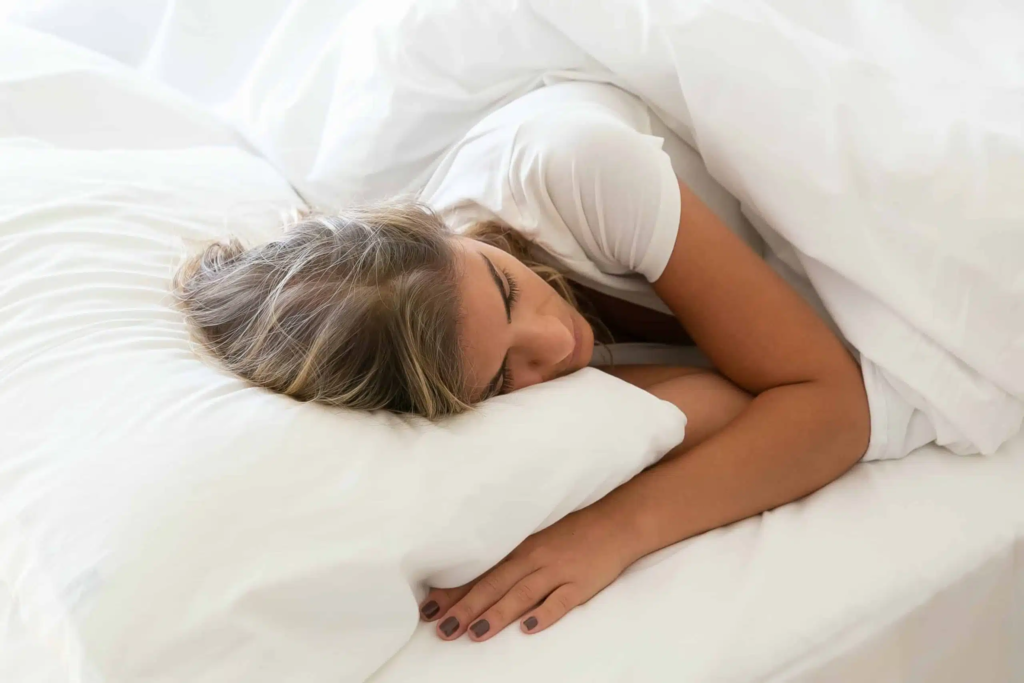Introduction
In the world of cannabinoids, CBD (cannabidiol) is well-known for its potential to promote relaxation and improve sleep. However, there’s a newcomer in the scene – CBG (cannabigerol). CBG oil has gained attention for its various potential health benefits, including its possible role in addressing sleep issues. In this comprehensive guide, we will delve into the world of CBG oil, exploring its effects on sleep and whether it can be a natural solution for those seeking better rest.
Understanding CBG

CBG, or cannabigerol, is one of the many cannabinoids found in the cannabis plant. While it is not as well-studied as CBD or THC, CBG is gaining recognition for its potential therapeutic properties. Unlike THC, CBG is non-psychoactive, meaning it won’t produce a “high.” Instead, it interacts with the endocannabinoid system (ECS) to influence various bodily functions, including sleep.
The Connection Between CBG and Sleep
Research on the specific effects of CBG on sleep is still in its infancy, but initial findings are promising. CBG may indirectly affect sleep by interacting with the ECS, which plays a crucial role in regulating sleep-wake cycles. It can potentially influence sleep by:
- Anxiety Reduction: CBG may have anxiolytic (anxiety-reducing) properties, which can help calm racing thoughts and promote relaxation before bedtime.
- Pain Relief: CBG’s potential as an analgesic (pain reliever) may ease discomfort that can disrupt sleep.
- Anti-Inflammatory Effects: Inflammation is linked to sleep disturbances. CBG’s anti-inflammatory properties might help alleviate this issue.
- GABA Regulation: CBG could potentially influence GABA receptors, promoting relaxation and reducing sleep latency (the time it takes to fall asleep).
CBG vs. CBD for Sleep

CBG and CBD share some similarities in their potential effects on sleep, but they also have distinct differences. CBD is more widely studied and renowned for its calming and anxiety-reducing effects, which can indirectly promote better sleep. In contrast, CBG’s specific sleep-related effects are still emerging.
While both cannabinoids have potential sleep benefits, choosing between them may come down to individual preferences and needs. Some people find that a combination of CBD and CBG provides the best results for sleep improvement.
Using CBG Oil for Sleep
If you’re interested in using CBG oil to enhance your sleep quality, here are some essential considerations:
- Dosage: Start with a low dose and gradually increase it until you find the optimal amount that promotes better sleep without unwanted side effects.
- Consistency: Consistency is key when using CBG oil for sleep. Take it at the same time each night to help regulate your sleep-wake cycle.
- Consult a Professional: Before incorporating CBG oil into your sleep routine, consult with a healthcare provider, especially if you have underlying medical conditions or are taking other medications.
- Quality Matters: Choose a reputable CBG oil product from a trusted source to ensure quality and purity.
Potential Side Effects and Risks
While CBG is generally considered safe, like any supplement, it may have potential side effects. These can include dry mouth, dizziness, and changes in appetite. However, these side effects are typically mild and temporary.
It’s essential to be aware of the potential risks and consult with a healthcare professional before using CBG oil, especially if you’re pregnant, nursing, or have underlying health concerns.
Current Research on CBG and Sleep
While research on CBG’s specific effects on sleep is limited compared to CBD, some preliminary studies and anecdotal evidence suggest its potential benefits. For example, a 2013 study published in the journal Pharmacology Biochemistry and Behavior found that CBG increased sleep duration in rats. Although these results cannot be directly extrapolated to humans, they do indicate that CBG may have sleep-regulating properties.
Additionally, a study published in the journal Cannabis and Cannabinoid Research in 2020 highlighted CBG’s potential as a neuroprotective agent, which could indirectly support healthier sleep patterns. Neuroprotection may play a role in maintaining proper brain function and sleep regulation.
Many users have reported positive experiences with CBG in addressing sleep issues. While these anecdotal accounts are valuable, more extensive research is needed to confirm CBG’s efficacy as a sleep aid.
Personalized Sleep Solutions
It’s important to recognize that not everyone responds to cannabinoids in the same way. Factors such as individual biochemistry, the root cause of sleep disturbances, and overall health play a significant role in how CBG affects sleep.
For some individuals, CBG may provide noticeable improvements in sleep quality, while others may not experience the same benefits. Experimentation and finding the right balance and dosage that works for you is essential. Keeping a sleep journal can be helpful in tracking your sleep patterns and the effects of CBG oil over time.
Complementary Sleep Practices
While CBG oil shows potential as a natural sleep aid, it’s important to consider holistic approaches to improve sleep quality. Incorporating healthy sleep practices can enhance the effectiveness of CBG or any sleep aid:
- Maintain a Consistent Sleep Schedule: Go to bed and wake up at the same time every day, even on weekends.
- Create a Relaxing Bedtime Routine: Engage in calming activities like reading or taking a warm bath before sleep.
- Limit Screen Time: Avoid screens (phones, computers, TVs) before bedtime as the blue light can disrupt sleep.
- Create a Comfortable Sleep Environment: Ensure your bedroom is dark, quiet, and at a comfortable temperature.
- Limit Caffeine and Alcohol: Reduce consumption of caffeine and alcohol, especially in the hours leading up to bedtime.
- Regular Exercise: Engage in regular physical activity, but avoid vigorous exercise close to bedtime.
- Stress Management: Practice relaxation techniques like meditation or deep breathing to manage stress and anxiety.
Safety and Legal Considerations
CBG is generally considered safe when used responsibly and in moderate doses. However, it’s essential to be aware of the legal regulations regarding CBG in your region, as they can vary. In many places, CBG is legal as long as it contains minimal or no THC.
Always purchase CBG products from reputable sources that provide third-party lab testing to verify their purity and cannabinoid content. This ensures you are getting a safe and reliable product.
Additionally, if you are subject to drug testing, be aware that some tests may produce false positives for THC when using CBG products, as they can contain trace amounts of THC.
Conclusion
CBG oil’s potential to improve sleep is an exciting area of exploration in the world of cannabinoids. While research is still ongoing, initial findings suggest that CBG may offer sleep-related benefits by reducing anxiety, managing pain, and promoting relaxation. If you’re considering CBG oil as a sleep aid, consult with a healthcare professional, start with a low dose, and monitor its effects on your sleep quality. As more research unfolds, CBG may become a valuable addition to the toolbox of natural solutions for sleep improvement.

